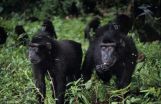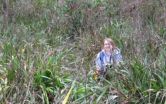(Press-News.org) With climate change sparking concern about an increased risk of wildfires, scientists are reporting development of a way to detect grapes exposed to smoke from those fires, which otherwise could be vented into bad-tasting wine. Their report on the method for detecting smoke taint in both grapes and wine appears in ACS' Journal of Agricultural and Food Chemistry.
Yoji Hayasaka and colleagues point out that Australia and other areas of the world are experiencing an increase in bush and wildfires, which may continue and intensify with global climate change. Smoke from those fires can travel long distances and poses a special threat for wine grapes. Grapes exposed to smoke yield wines with unpalatable aromas and tastes, sometimes described as resembling "smoked meat," "disinfectant" or a "dirty ashtray."
In an effort to manage or avoid production of smoke-tainted wines, they developed a test for the substances formed in grapes after exposure to smoke. They describe its development and laboratory tests demonstrating that the method can determine whether grapes have been smoke-tainted before they were crushed and pressed into wine. The test also can identify smoked wines.
###The authors acknowledge funding from Australia's grape growers and winemakers through their investment body, the Grape and Wine Research Development Corporation, with matching funds from the Australian government.
The American Chemical Society is a nonprofit organization chartered by the U.S. Congress. With more than 163,000 members, ACS is the world's largest scientific society and a global leader in providing access to chemistry-related research through its multiple databases, peer-reviewed journals and scientific conferences. Its main offices are in Washington, D.C., and Columbus, Ohio.
To automatically receive news releases from the American Chemical Society, contact newsroom@acs.org.
Follow us: Twitter Facebook
New way to identify 'smoked' grapes and wines
2013-01-23
ELSE PRESS RELEASES FROM THIS DATE:
Scientists underestimated potential for Tohoku quake. Now what?
2013-01-23
CORVALLIS, Ore. – The massive Tohoku, Japan, earthquake in 2011 and Sumatra-Andaman superquake in 2004 stunned scientists because neither region was thought to be capable of producing a megathrust earthquake with a magnitude exceeding 8.4.
Now earthquake scientists are going back to the proverbial drawing board and admitting that existing predictive models looking at maximum earthquake size are no longer valid.
In a new analysis published in the journal Seismological Research Letters, a team of scientists led by Oregon State University's Chris Goldfinger describes how ...
Putting the squeeze on cells
2013-01-23
CAMBRIDGE, Mass. — Living cells are surrounded by a membrane that tightly regulates what gets in and out of the cell. This barrier is necessary for cells to control their internal environment, but it makes it more difficult for scientists to deliver large molecules such as nanoparticles for imaging, or proteins that can reprogram them into pluripotent stem cells.
Researchers from MIT have now found a safe and efficient way to get large molecules through the cell membrane, by squeezing the cells through a narrow constriction that opens up tiny, temporary holes in the membrane. ...
Panel recommends changing name of common disorder in women
2013-01-23
An independent panel convened by the National Institutes of Health has concluded that the name of a common hormone disorder in women, polycystic ovary syndrome (PCOS), causes confusion and is a barrier to research progress and effective patient care. The current name focuses on a criterion — ovarian cysts — which is neither necessary nor sufficient to diagnose the syndrome. In a report released today, the panel recommended assigning a new name that more accurately reflects the disorder.
"The name PCOS is a distraction that impedes progress. It is time to assign a name ...
Better outlook for dwindling black macaque population in Indonesia
2013-01-23
Since at least the 1970s, the population of critically endangered Sulawesi black macaques living in an Indonesian nature reserve has been dropping. But a new study by researchers at the University of Washington and in Indonesia shows that the population has stabilized over the past decade.
The findings, published in the January issue of the American Journal of Primatology, are from the longest ongoing survey of Macaca nigra and are among the first evidence that the monkeys may be in better shape.
"Fifteen years ago it looked like this macaque population would continue ...
Treatment targeting PI3K may delay resistance to anti-HER2 therapy in breast cancer patients
2013-01-23
PHILADELPHIA — Patients with HER2-positive breast cancer being treated with anti-HER2 therapy may be able to prevent or delay resistance to the therapy with the addition of a phosphatidylinositol-3 kinase inhibitor to their treatment regimens.
The data, published in Cancer Research, a journal of the American Association for Cancer Research, indicated that failure of the anti-HER2 antibody trastuzumab to block HER2 from activating the phosphatidylinositol-3 kinase (PI3K) signaling pathway can lead to resistance to treatment. Therefore, dual simultaneous inhibition of ...
Global plant diversity hinges on local battles against invasive species
2013-01-23
In Missouri forests, dense thickets of invasive honeysuckle decrease the light available to other plants, hog the attention of pollinators and offer nutrient-stingy berries to migrating birds. They also release toxins that decrease the germination of nearby native plants. Why, then, do studies of invasive species come to different conclusions about their effects and lead some organizations to suggest we accept their presence?
Biologists Kristin Powell, Tiffany Knight and Jon Chase of Washington University in St. Louis have found an answer.
Most studies of the effects ...
More efficient way to make popular prescription medication
2013-01-23
In a demonstration of the power of green chemistry, scientists are reporting development of a new and more efficient process for making one of the most costly and widely used medications for severe mental illness. Described in a report in the journal ACS Sustainable Chemistry & Engineering, it produces larger amounts of the medication than the existing commercial process while reducing the use of solvents and other potentially toxic substances.
Vijayavitthal T. Mathad and colleagues point out that paliperidone, marketed under the brand name Invega, is one of a new generation ...
Caloric restriction has a protective effect on chromosomes
2013-01-23
One of the indicators of a cell's health is the state of its DNA and containers—the chromosomes—so when these fuse together or suffer anomalies, they can become the source of illnesses like cancer and/or ageing processes.
According to a study carried out by a team led by María Blasco, the director of the Spanish National Cancer Research Centre (CNIO) and head of the Telomeres and Telomerase Group, a sustained lowering of food intake over time results in an increase of telomere length—the ends of chromosomes—in adult mice, which has a protective effect on the DNA and genetic ...
Products That Make a Difference: Discover MaxiAids' 2013/14 Catalog
2013-01-23
MaxiAids Products for Independent Living (www.MaxiAids.com) has released their 2013/14 Catalog. Commonly accepted as the 'Reference Guide of the Industry,' the MaxiAids Catalog contains the largest available assortment of items that support active, healthy and independent lives.
The most viewed catalog in the industry, it has thousands of budget-friendly assistive items for all age groups, no matter what their special need is. See more clearly with magnified, talking or large print daily living items such as talking watches and large numbered clocks! Never oversleep ...
Lower drinking ages can have an impact on later drinking patterns
2013-01-23
Lower minimum legal drinking age (MLDA) laws have been associated with short-term effects such as a greater number of traffic fatalities and teen suicides. A new study has investigated the long-term and persistent linkages between permissive MLDA laws and specific drinking behaviors such as average alcohol consumption, frequency of drinking, patterns of binge drinking, and moderate drinking. Findings support an association with problematic drinking behaviors that persist into later adulthood, such as more frequent binge episodes.
Results will be published in the March ...


